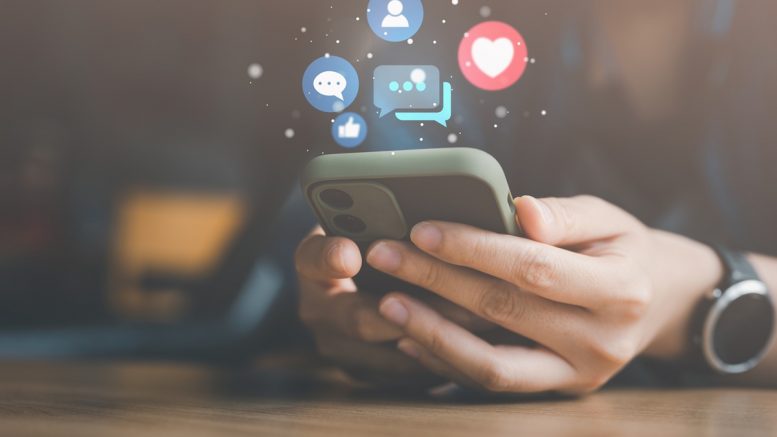One of the biggest shifts in the health care landscape has been how younger generations seek and engage with medical advice. Today, social media is a go-to for many of Gen Z looking for information on various symptoms, recovery methods, mental health conditions and more. Platforms like TikTok, YouTube and Instagram are taking precedence over in-person medical consultations.
For health care professionals, this trend represents both opportunities and challenges. The key is understanding why social media has become a popular source of health advice and how to adapt.
The Rise of Social Media as a Medical Advisor
A CharityRx study revealed one-third of surveyed Gen Zers use TikTok for medical advice, and 44% use YouTube before consulting their doctor. Convenience plays a significant role. Social media users can skip navigating appointment availability, taking time off from work or school, and attending in-person doctor’s visits.
Along with this convenience comes increased accessibility. Anyone with limited time, mobility or funds might enjoy greater access to health-related advice. Some perceive social media as a cost-effective alternative to traditional health care and insurance.
Relatability is also a key factor in why social media appears to be replacing medical professionals. Seeing younger influencers or other people share health-related challenges or tips can create a sense of trust among internet users of a similar age.
Concerns of Seeking Medical Advice on Social Media
While the reasons Gen Z is turning to social media are valid, this shift has several drawbacks.
Lack of Privacy
Social media platforms are no strangers to privacy concerns. Seemingly innocent entertainment tools on social media like facial filters can make user information vulnerable to hackers.
The majority of teens also feel they have little to no control over the personal data social media companies gather on them. As more users share medical information on public channels, their health information faces greater risk.
Spread of Misinformation
Misinformation — whether unintentional or malicious — can lead people to self-diagnose inaccurately, avoid professional medical care or seek potentially harmful solutions to symptoms. Health care professionals are trained and certified to administer medical advice and offer guidance. When misinformatiation leads to ill-advised remedies or misdiagnoses, the stakes can be extreme.
Lack of Personalized Advice
Health is rarely a one-size-fits-all approach. Various factors — such as genetics, diet, existing conditions, medications, mental health and lifestyle — influence what medical guidance is most effective for particular individuals. While one user might share their experience with the best of intentions, it doesn’t mean their advice will be applicable to someone else.
Biased or Sponsored Content
Many influencers on social media rely on sponsorships for their livelihoods. While best practices require transparency when disseminating promotional content, some influencers may not abide by this, or users might not recognize when content is sponsored.
Sponsored content runs the risk of being biased. Ideally, medical advice should uphold a stringent standard for objectivity to ensure people receive accurate information.
Implications for Health Care Providers
Gen Z turning to social media as a medical advisor presents challenges for health care providers, including:
- Declining primary care visits: As younger generations rely more on social media for health advice, drawing them into physical medical offices will become increasingly challenging.
- Increased demand for digital solutions: Younger tech-savvy patients want the convenience of telehealth appointments, online portals and apps they can access from anywhere.
- Misinformation: Health care professionals are invested in sharing sound medical advice. The spread of misinformation damages their profession and endangers populations.
- Building trust with younger patients: Younger patients may be skeptical of what medical experts can offer them. A concerning 38% of young adults have said they’ve disregarded guidance from their provider, taking advice from social media instead. Institutions will have to be creative and adapt to changes in health care to build trust with younger generations.
Tips for Health Care IT Professionals
With the increase of mental health issues like anxiety and depression, it is essential not to lose touch with younger populations in need of reputable assistance. Health care IT professionals are in a unique position to bridge the gap between traditional medical service mediums and the demands of newer generations.
Here’s how these industry experts can address the biggest challenges of social media’s influential role in medicine:
- Enhance digital presence: Medical institutions should have a presence on the most popular platforms among Gen Zers — Instagram, TikTok and YouTube. They should also follow similar entities online to create connections and get inspiration for attention-grabbing content.
- Leverage SEO: Keyword research and familiarity with the algorithmic patterns of top platforms can boost valuable content and reach the intended audience.
- Partner with health care influencers: This can maximize views and go a long way to helping build trust among Gen Zers. IT professionals should thoughtfully consider an influencer’s previous content to make sure it aligns with their own institution’s goals.
- Provide evidence-based commentary: Along with putting out content, medical facilities should engage with other social media content. This fosters an online community and helps stop misinformation.
- Encourage patient reviews: First-hand positive reviews and client testimonies strengthen an organization’s reputation for quality service.
- Implement virtual access: Telehealth capability is a great way to reach patients of all ages. Mobile apps and virtual health monitoring also give people convenient access to health-related services. From November 2023-2024, 2% of Gen Zers used a mobile health app.
- Personalize communication: Audience research and surveys can help tailor content for specific generations and communication for particular users.
Connecting With Gen Z in the Digital Health Age
Gen Z’s shift to social media for medical advice presents challenges for health care organizations, but it also offers opportunities to modernize access and content creation. Health care IT professionals can lead the way in digitizing these services to reach younger audiences and stop the spread of misinformation.
By Zac Amos, ReHack





